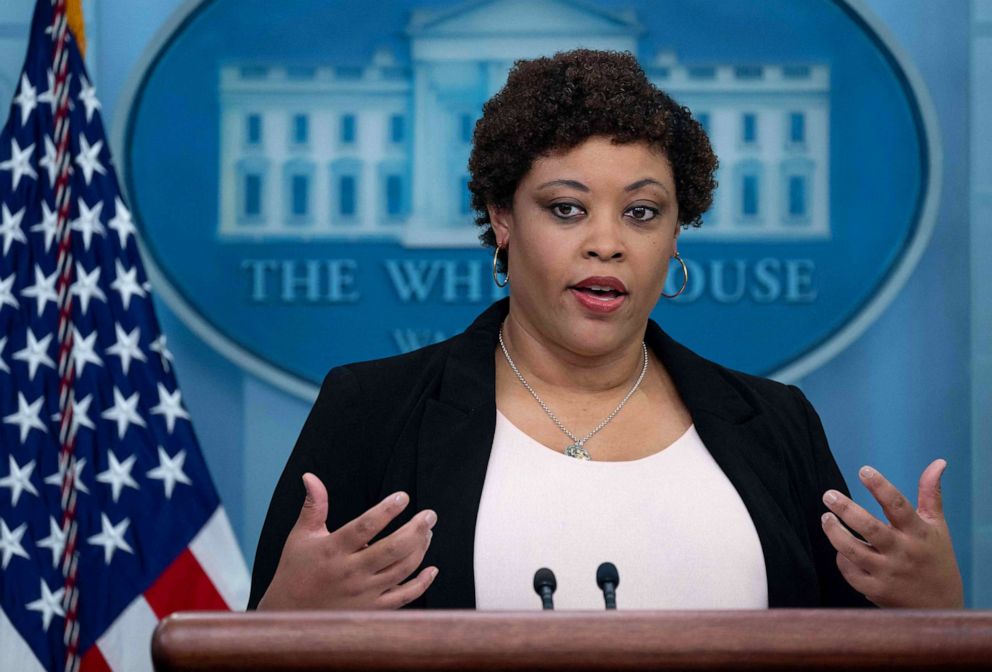债务上限协议促成了乔·拜登总统和众议院议长凯文·麦卡锡周二晚上清除了一个主要的程序障碍,就在潜在违约的前几天被美国政府逮捕。
众议院规则委员会为财政责任法案开了绿灯,以推动众议院全体会议,这样议员们可以在周三晚上举行计划好的投票,然后在周一默认截止日期之前将立法提交给参议院。
该小组以7票对6票的微弱优势将该法案提交给议会进行辩论。
共和党的强硬派和财政鹰派肯塔基州众议员托马斯·马西(Thomas Massie)投票支持这项规定,这是共和党领导层的一大胜利。
“今天的法案是妥协的产物,反映了政府分裂的现实,”支持该提案规则的俄克拉荷马州共和党众议员汤姆·科尔(Tom Cole)在会议开始时说。
在他自己的评论中,Massie说,“我在这个委员会中的兴趣并不是要灌输我的意识形态。我认为这是对委员会的不当利用。”他后来告诉记者,他计划在议会投票支持该协议。
该委员会的其他众议院自由核心小组成员,德克萨斯州众议员奇普·罗伊(Chip Roy)和北卡罗来纳州众议员拉尔夫·诺曼(Ralph Norman)发誓要阻止该法案向前发展,并最终与四名民主党成员一起投票反对该规定。
“没有一个共和党人应该投票支持这项协议。这是一个糟糕的交易,”罗伊周二早些时候在众议院自由会议新闻发布会上说。
他还含蓄地威胁说,如果交易成功,可能会有后果。
“我们今天会继续战斗,明天也一样,”罗伊说。“无论发生什么,都会对刚刚发生的事情进行清算,除非我们在明天之前阻止这项法案。”
众议院自由核心小组主席斯科特·佩里(Scott Perry)在新闻发布会上回避了关于他是否支持撤离动议的问题。这项规则允许任何众议院成员强行投票,试图罢免议长。
“我会让每个成员为自己说话。对我来说,我专注于击败这个法案。之后会发生什么,以及我们已经达成的协议,我们将在最终确定该法案的处理方式后做出决定,”佩里说。
麦卡锡对来自党内人士的批评不屑一顾,特别是一些声称民主党被民主党“智取”的人。
“我们是如何被击败的,国会历史上最大的削减,最大的撤回资金的能力?”麦卡锡说。
该法案能否在国会获得通过将取决于两党温和派的支持。据美国广播公司报道,白宫和共和党领导人一直在举行电话和简报会,以推销该协议,并计划举行更多会议。
议员们面临着通过债务上限协议的时间紧张,因为财政部长珍妮特·耶伦(Janet Yellen)警告说,“X日”(即政府可能耗尽现金按时全额支付所有账单的日子)可能最早在6月5日发生。
众议院少数党领袖哈基姆·杰弗里斯(Hakeem Jeffries)周二表示,共和党人已经表示,他们将提供150张本党选票,“众议院民主党人将确保国家不会违约。”
由大约100名众议院民主党人组成的新民主党联盟已经批准了债务上限协议。
当被问及计票结果时,预算和管理办公室主任Shalanda Young(债务谈判中的关键谈判者)没有宣布胜利,告诉记者她会把这个问题留给国会。
“我所知道的是,当你进入真诚的谈判时,你不会谈判到看到一项法案被公布,”她在白宫的每日简报会上说。“你通过谈判确保它被送到总统的办公桌上,当它被送到总统的办公桌上时,我们将履行我们的职责。”
财政责任法案包括一项为期两年的政府预算,以换取在2025年1月1日之前提高债务上限。该法案将在2024财年保持非国防支出不变,并在2025财年增加1%的水平。
无党派的国会预算办公室(Congressional Budget Office)周二晚间发布了对债务上限协议的评分或财政分析,估计该协议将在10年内将联邦赤字减少1.5万亿美元。
根据CBO的数据,这一时期的公共债务利息也将下降1880亿美元。

2023年5月30日,DC华盛顿白宫布雷迪简报室,预算和管理办公室主任沙兰达·杨在每日简报中发言。
索尔·勒布/法新社
参议院多数党领袖查克·舒默(Chuck Schumer,D-N.Y .)表示,一旦众议院通过该法案,参议院将立即着手处理。他建议他的同事为周五和周末可能的投票做准备,如果没有一致的合作。
如果出现阻挠议事的情况,它可能会推动众议院超过6月5日的默认截止日期。犹他州共和党参议员李政颖此前威胁说,他不同意“使用我所掌握的一切程序工具来阻止债务上限协议”。
舒默和少数党领袖米奇·麦康奈尔(Mitch McConnell)在周二的发言中,罕见地团结一致,称赞了债务上限协议。
“我支持拜登总统和麦卡锡议长达成的两党协议。避免违约是绝对必要的,”舒默说。
麦康奈尔说,虽然没有人得到他们想要的一切,“美国人民在财政健全方面取得了比华盛顿民主党人想要给他们的更多的进步。麦卡锡议长和众议院共和党人值得我们感谢。”
Debt ceiling deal to prevent default narrowly passes 1st big test in key House committee
The debt ceiling deal brokeredby President Joe Biden and House Speaker Kevin McCarthycleared a major procedural hurdle on Tuesday night,just days before a potential defaultby the U.S. government.
The House Rules Committee gave the green light for the Fiscal Responsibility Act to advance to the full House so members can hold a planned vote on Wednesday night before sending the legislation to the Senate ahead of Monday’s default deadline.
The panel advanced the bill to the floor for debate in a narrow 7-6 vote.
In a big win for Republican leadership, Rep. Thomas Massie of Kentucky -- a GOP hard-liner and fiscal hawk -- voted in favor of the rule.
"Today's bill is a product of compromise and reflects the realities of a divided government," Oklahoma Republican Rep. Tom Cole, who supported the rule for the proposal, said as he began the meeting.
In his own remarks, Massie said, "My interest in being on this committee was not to imprint my ideology. I think that is an inappropriate use of the committee." He later told reporters he planned to vote for the deal on the floor.
The other House Freedom Caucus members on the committee, Reps. Chip Roy of Texas and North Carolina's Ralph Norman, vowed to try to block the bill from moving forward and ultimately voted against the rule, along with the four Democratic members.
"Not one Republican should vote for this deal. It is a bad deal," Roy said earlier Tuesday at a House Freedom Caucus press conference.
He also issued a veiled threat that there could be consequences if the deal goes through.
"We will continue to fight today, tomorrow," Roy said. "And no matter what happens, there's going to be a reckoning about what just occurred, unless we stop this bill by tomorrow."
Rep. Scott Perry, the chairman of the House Freedom Caucus, dodged questions at the news conference on whether he'd support a motion to vacate -- a rule that would allow any House member to force a vote to attempt to remove the speaker.
"I'll let each member speak for themselves. For me, I am focused on defeating this bill. What happens post that, and the agreements we have, we will decide once we determine the disposition of the bill in its finality," Perry said.
McCarthy shrugged off the criticism from those in his party, specifically some who claim the party was "outsmarted" by Democrats.
"How were we outsmarted, the largest cut in the history of Congress, the biggest ability to pull money back?" McCarthy said.
Getting the bill through Congress will hinge on support from moderates in both parties. The White House and Republican leaders have been holding calls and briefings to sell the deal, with more meetings planned, ABC News has reported.
Lawmakers face a time crunch to pass the debt ceiling deal because Treasury Secretary Janet Yellen has warned the "X-date" -- when the government could run out cash to pay all its bills in full and on time -- could happen as early as June 5.
House Minority Leader Hakeem Jeffries said Tuesday Republicans have said they will deliver 150 votes from their party, and "House Democrats will make sure that the country does not default."
The New Democrat Coalition, made up of roughly 100 House Democrats, has endorsed the debt ceiling deal.
Asked about the vote tallies, Office of Budget and Management Director Shalanda Young (a key negotiator in the debt talks) stopped short of declaring victory, telling reporters she'd leave that to Congress.
"All I know is when you enter into good faith negotiations, you don't negotiate to see a bill posted," she said at the daily White House briefing. "You negotiate to make sure it gets to the president's desk and we'll fulfill our part when it gets to the president's desk."
The Fiscal Responsibility Act includes a two-year government budget in exchange for lifting the debt ceiling through Jan. 1, 2025. The bill would keep non-defense spending flat in fiscal 2024 and increase levels by 1% in fiscal 2025.
The nonpartisan Congressional Budget Office on Tuesday night released its score -- or fiscal analysis -- of the debt ceiling deal, estimating that it would reduce the federal deficit by $1.5 trillion over 10 years.
The interest on the public debt in that time period would also decline by $188 billion, according to the CBO.
Senate Majority Leader Chuck Schumer, D-N.Y., has said his chamber will take up the bill as soon as it passes the House. He advised his colleagues to prepare for possible Friday and weekend votes if there's not unanimous cooperation.
If there's a filibuster, it could push the chamber past the June 5 default deadline. Sen. Mike Lee, R-Utah, previously threatened to "use every procedural tool at my disposal to impede a debt-ceiling deal" he didn't agree with.
Schumer and Minority Leader Mitch McConnell, in a rare moment of unity, both praised the debt limit deal in floor remarks on Tuesday.
"I support the bipartisan agreement that President Biden has produced with Speaker McCarthy. Avoiding default is an absolute imperative," Schumer said.
McConnell said while no one got everything they wanted, "the American people got a whole lot more progress towards fiscal sanity than Washington Democrats wanted to give them. Speaker McCarthy and House Republicans deserve our thanks."






